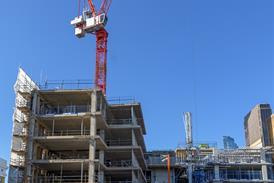They have also asked the ODPM to let them keep any capital receipts generated through market renewal investment – for instance, profits on regeneration deals done with developers. Each of these can be worth £3m-4m.
Changing the rules would allow them to spend the money on regeneration instead, they say.
Staff in the Merseyside and Manchester pathfinders estimate that for every grant-funded house knocked down, the corporation will claw back about £25,000.
Northern housing associations argue that £1000 of that should be given back to the association to cover demolition costs, and the remaining £24,000 should stay in the area to be spent on refurbishment and regeneration.
They want these things to be included in the "allowable costs" that are written off from what they owe the corporation.
That money needs to go back into the area where it is most needed
Kim Penfold, Harvest Housing
The current rules mean the money is ring-fenced for new build but the RSLs argue that it should be spent on what is most needed – which, in these areas, is likely to be refurbishment rather than new build.
Kim Penfold, director of strategy and information at Manchester-based Harvest Housing, said: "That money needs to go back into the area where it is most needed."
The Manchester Salford and Merseyside pathfinders are the worst affected because they have the highest level of housing association stock – some 42,500 housing association homes.
It has not yet been decided how many of the homes will be demolished, but even if only half of them were, registered social landlords could lose £21m in costs and £504m of investment.
Source
Housing Today

















No comments yet